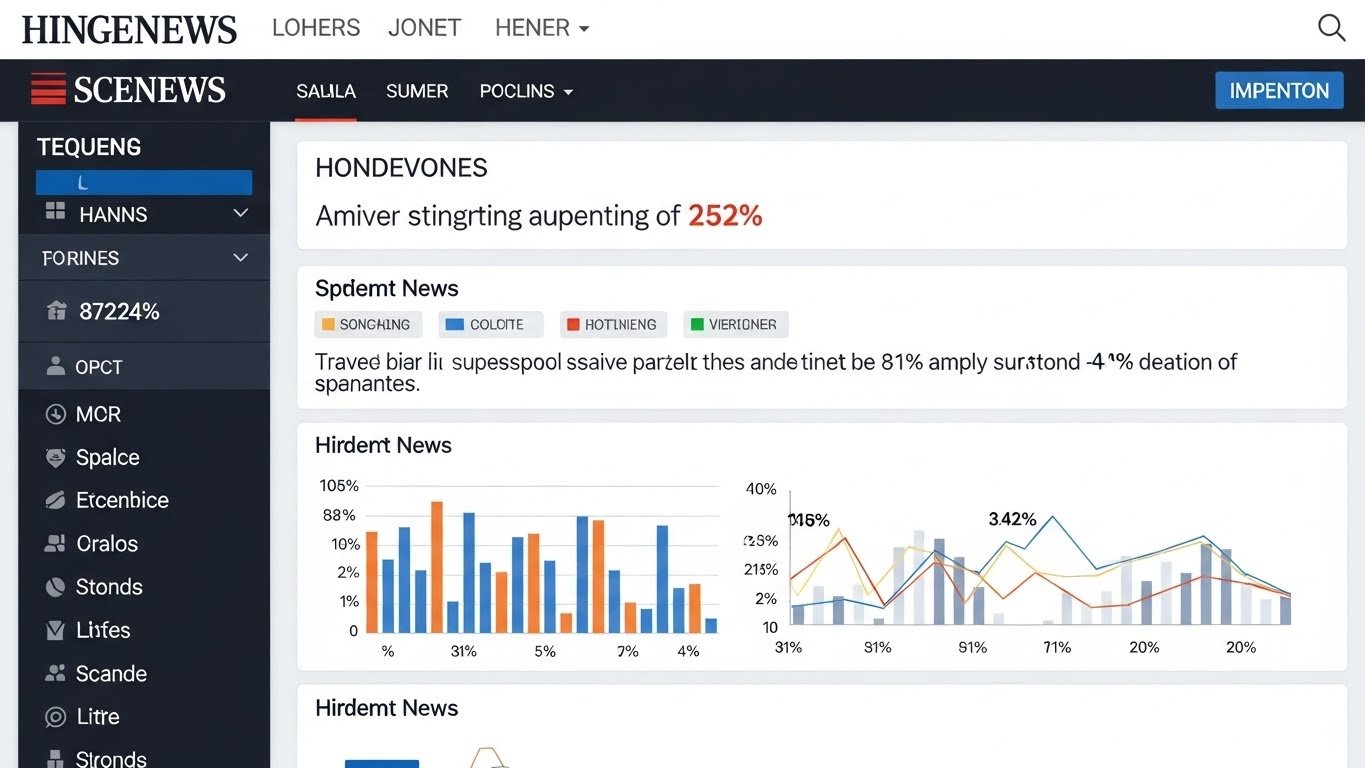Blockchain and cryptocurrencies have changed the way the world does business, handles money, and protects information in a big manner. Blockchain technology was first created in reaction to the global financial crisis of 2008. It garnered a lot of attention when Bitcoin, a decentralised peer-to-peer currency created by the mysterious person known as Satoshi Nakamoto, was released. Since then, blockchain has grown beyond only digital currencies. It now powers new technologies that change how value is recorded and exchanged in the digital era across many industries.
Decentralised Ledger Technology Explained
Blockchain is a distributed ledger technology (DLT) that keeps track of transactions on a network of computers in a way that is safe, open, and hard to change. Blockchain doesn’t keep data in one place; instead, it spreads it out across all the nodes (participants) in the network. There is a chronological “chain” of data blocks that is made up of each transaction and linked to the preceding block. This chain is protected by cryptographic hashing.
 Decentralisation is one of the most important things about blockchain. Blockchain networks use methods like Proof of Work (PoW) and Proof of Stake (PoS) to reach agreement. This is different from traditional systems that are governed by a single authority. These systems make sure that each transaction is checked equally and independently, which greatly lowers the chance of fraud or manipulation.
Decentralisation is one of the most important things about blockchain. Blockchain networks use methods like Proof of Work (PoW) and Proof of Stake (PoS) to reach agreement. This is different from traditional systems that are governed by a single authority. These systems make sure that each transaction is checked equally and independently, which greatly lowers the chance of fraud or manipulation.
The Rise of Cryptocurrencies
Cryptocurrencies are digital or virtual assets that use blockchain technology to work as a way to trade. They use public-key cryptography to keep transactions safe and keep track of how many new units are generated. Bitcoin was the first cryptocurrency, but several others, like Ethereum, Litecoin, Ripple (XRP), and Solana, came up soon after.
Ethereum, in particular, came up with the idea of smart contracts, which are agreements that run on their own and have rules written in code. This led to the creation of decentralised applications (dApps) and the decentralised finance (DeFi) ecosystem. These dApps work on their own, making it possible to lend and borrow money, trade, and govern without the need for middlemen.
Real-World Applications Beyond Currency
Cryptocurrencies are still the most well-known use case for blockchain, but its uses are becoming more and more varied. Blockchain is making cross-border payments and settlements easier in the financial services industry. Which cuts down on the time and cost of transactions by a huge amount. JP Morgan, Mastercard, and Visa are using blockchain to make global transactions faster and safer.
Blockchain is utilised in healthcare to make electronic health record systems that are safe and can work with other systems. This lowers the risk of data breaches and makes medical histories more accurate. Blockchain’s openness and capacity to track things down help pharmaceutical supply networks fight fake pharmaceuticals at the same time.
Companies like IBM and Maersk are using blockchain to make it easier to track things and cut down on administrative costs in the logistics and supply chain sector. Blockchain is also used in voting systems, intellectual property. And real estate tokenisation, among other things, as a safe alternative to old approaches.
Regulation and Global Perspectives
As the blockchain and cryptocurrency world grows up, global rules and regulations are slowly catching up. The SEC, or the United States Securities and Exchange Commission. Has made it clear that some digital assets should be treated as securities. At the same time, the European Union’s Markets in Crypto-Assets (MiCA) regulation is making sure that all EU member states follow the same standards for digital assets.
China and other countries have put limits on cryptocurrency trade and mining because they are worried about financial stability. On the other hand, countries like El Salvador and Switzerland have adopted crypto-friendly legislation in order to encourage new ideas and investment. Central bank digital currencies (CBDCs) are another sign of the growing interest of governments in blockchain-based financial products.
Blockchain Adoption Challenges Overview
Even while things are moving quickly, there are still a number of problems that make it hard for most people to use them. Scalability is a big problem; Bitcoin and Ethereum blockchains have had to deal with network congestion and high transaction fees. But improvements like Ethereum 2.0 and layer-2 solutions like Polygon are fixing these problems by using better ways to reach agreement.

Another big worry is how much energy these networks use, especially those that use PoW. People have criticised Bitcoin mining for harming the environment, which has led to more interest in eco-friendly options like PoS. Users and platforms are both at danger from security holes, especially in smart contracts that aren’t built well.Lastly. Investors are unsure since the crypto markets are so unstable and there isn’t enough clear regulation. For widespread adoption to happen, education needs to get better, interfaces need to be easier to use, and wallet security needs to get better.
Final thoughts
The future of blockchain and cryptocurrency is closely linked to other new technologies. Combining blockchain with AI, machine learning, and the Internet of Things (IoT) might lead to new business models and efficiency that have never been seen before. Decentralised identification solutions, non-fungible tokens (NFTs), and Decentralised Autonomous Organisations (DAOs) are also becoming more popular. These are new ways of thinking about ownership, collaboration, and governance in the digital world.
To fully realise blockchain’s potential, we need to work together around the world. Share ideas, and make sure that laws are in line with each other. As the infrastructure gets better, we should anticipate blockchains to work together better, compliance tools to get stronger, and businesses to use them more.



















